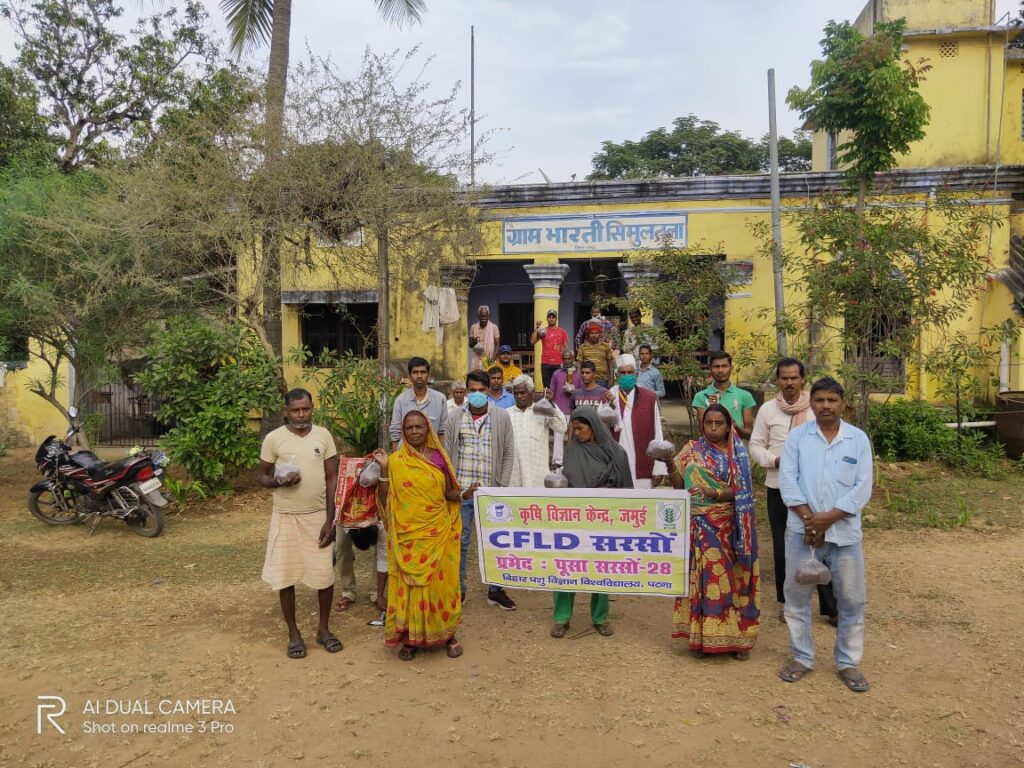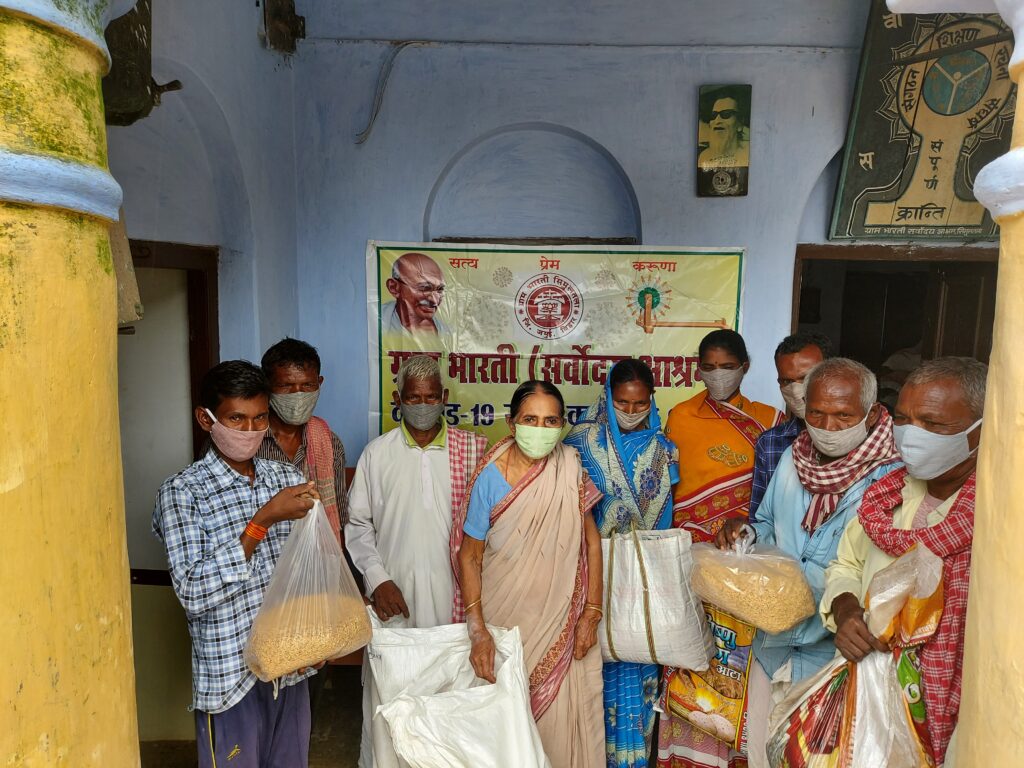



“GRAM BHARTI is the outcome of the Sant Vinoba’s Bhoodan and Gramdan movement for socio economic reconstruction of rural India along Gandhian lines of truth and non-violence based on the principle of trustee-ship.
Our journey began as a branch of SHRAM BHARTI, Khadi Gram, Jamui, founded by Dhirendra Mazumdar, the then President of Sarva Seva Sangh. Our initial focus was on training social workers and spreading awareness about the significance of Vinoba’s Bhoodan and Gramdan movement. Our attention was drawn to the three most backward and drought-prone blocks of Jamui district- Jhajha, Chakai, and Sono.
Through intensive contact programmes with Bhoodan workers via “PADYATRA,” we received land donations of 15,000 acres, of which 10,000 acres were distributed among the landless people of some 160 villages in these areas. By 1970, the three blocks came under Gramdan, and the number of gramdani villages rose to 1100. In Bihar, some Gramdani villages have been granted the status of Gram Panchayat. The first ten villages included therein belong to this area and more than 100 villages have fulfilled all conditions for the same status.
In 1967, a couple named Shivanad Bhai and Sarla Bahan, organized relief work as Sarvodaya workers. With inspiration and enthusiasm, they went up to Billigaganpur, the remotest corner of this hilly and forest area, mainly populated by aboriginals and Harijans (Dalits) and opened relief centres to fight famine and death with the organized strength of the people themselves. J.P. himself visited the place in the hilly tract and was impressed by the couple’s dedicated work with the poor aboriginals.
At JP’s instance, Simultala was selected for creating intensive livelihood opportunities with support from Oxfam, CRS, and CASA. It requires a good deal of patience, courage, and sacrifice to deal with the problems of the poor, illiterate, ignorant, and downtrodden. But a handful of dedicated social workers, with tireless and continuous efforts, have succeeded in expanding their sphere of activities. Today, Gram Bharti, with more than 26 paid workers and thousands of part-time village workers and volunteers, is pioneering the cause of this area, striving for the establishment of self-governing Gram Sabhas with powers to work for all-round development.
Formally registered under the Societies Registration Act 1860 (Act XXI) on July 30, 1977, with Registration No. 73 of 1977-78, Gram Bharti began working towards its goal in 1962. With our commitment to rural development and our tireless efforts, we have emerged as a pioneer in the field. Join us in our journey to empower rural India and create sustainable livelihoods for all.